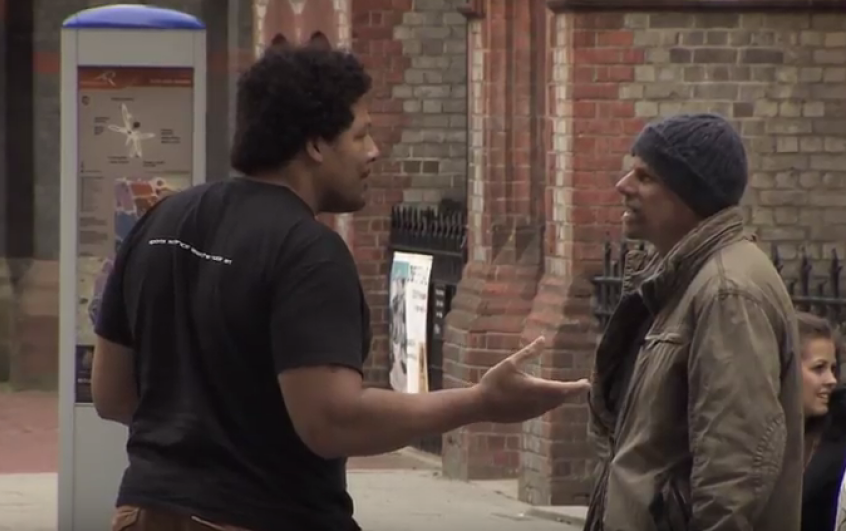Two-thirds of us worry that Britain is becoming less kind, yet the same proportion would not stop to help a person in need on the street, according to research released today.

If an elderly lady was crying in the street, just 55 per cent of us would stop to comfort her, despite 86 per cent of adults thinking that Britain would benefit if people were more willing to help one another.
These findings are the result of polling by Yougov commissioned by the Bible Society, and are part of a campaign exploring the story of the Good Samaritan (Luke 10:25-37).
The parable's challenge is twofold, says Paul Wooley, acting chief executive of the Bible Society. "It is a spectacular invitation to a life of self-giving that insists we roll up our sleeves and help no matter what it takes", but also "challenges us to recognise that there are no limits to our neighbourhood or neighbourliness."
"It demands that even those who are hated and feared are to be seen as our neighbours," he adds. "The implications of this parable, ancient and modern, are radical indeed."
As part of its research, the Bible Society conducted a social experiment in which a Baptist pastor, dressed smartly and wearing his dog collar, went onto the streets and asked strangers to borrow their phone. The results were largely positive. He then "dressed up" as a homeless man and asked the same question; this time, however, he found people were far less willing to help.
There seems to be a desire to create a kind society among much of the British population. We recognise its benefits, and yet we have developed a culture of distrust and prejudice. There is a disconnect between our desires and the role we have to play in fulfilling them. We have put limits on who we consider to be our "neighbour", which is an attitude directly challenged by Jesus in the story of the Good Samaritan.
As Martin Luther King said: "On the parable of the Good Samaritan, I I imagine that the first question the priest and Levite asked was: 'If I stop to help this man, what will happen to me?' But by the very nature of his concern, the Good Samaritan reversed the question: 'If I do not stop to help this man, what will happen to him?'"
The Church is quite good at developing programmes that feed the hungry, promoting charitable causes to give money to, and making rotas for people to serve. This is a great thing. We need to challenge the way things are structurally and provide ways in which people can give their time. However, the call does not stop there.
It is easy to donate money from a distance, and even to volunteer some time in an organised fashion, but Jesus' call to be a good neighbour requires a spontaneity that sits uncomfortably with the British public. It cuts through pretence and requires a real cost that we can't plan for.
Jesus calls us to be good neighbours – to be kind. Being a neighbour does not mean being a volunteer. It is more haphazard than that, and less contained. The call to be a good neighbour is a call to a lifestyle and a heart posture that is counter-cultural. It is uncomfortable. We must be willing for our day to be interrupted, for our desires to become secondary, and our perspective changed. We must be willing to build relationships and make ourselves vulnerable. It is a call not only to demand structural change that will bring about an end to poverty and homelessness, but to be willing to engage with those who are directly affected by it.
It demands us to be willing to look at people not programmes; at other people, but also ourselves. And that is not always easy, or pleasant. The story of the Good Samaritan would not have been easy for the teacher of the law to hear, either. Those criticised in this well known narrative – the Levite and the priest – are the religious of Jesus' time. They would have been the ones who spent time in the Temple worshipping God. They would have been the most faithful adherents to tithing. They may well have been en route to a religious service when they came across the man on the road. They might look a little like us – the good, church-going Christian who gives an evening a week to the local drop-in.
The good neighbour in the story was not one of us. He would not have been in church on a Sunday. But in caring for that man, he revealed a heart that was kind. It is this heart that God is interested in, and from which action overflows.















